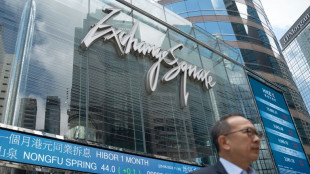

US consumer confidence falls as expectations grow tepid
US consumer confidence fell for the second straight month in February, a survey said Tuesday, as Americans' feelings about the economy's present and future health cooled.
The Conference Board said its consumer confidence index declined to 110.5, a drop of less than a point from January and better than analysts expected.
The data showed consumer expectations for the economy's future performance declined slightly, but there also was a small uptick assessments of its present condition, "suggesting the economy continued to expand in (the first quarter) but did not gain momentum," said Lynn Franco, senior director of economic indicators at The Conference Board.
After declining in December, consumer expectations for inflation 12 months ahead rose again to seven percent.
"While they do not expect the economy to pick up steam in the near future, they also do not foresee conditions worsening," Franco said.
"Nevertheless, confidence and consumer spending will continue to face headwinds from rising prices in the coming months."
A wave of price increases have sent inflation world's largest economy to the highest level in 40 years, battering American households and businesses that also are struggling to find workers. And conflict with Russia over Ukraine are sending fuel prices higher.
"It remains doubtful that consumer attitudes will experience a material improvement until inflation dynamics start to normalize in (the second quarter)," Mahir Rasheed at Oxford Economics said.
"In the meantime, geopolitical tensions in Europe will keep uncertainty elevated while price increases continue to outpace wage growth and erode household purchasing power."
Meanwhile, the survey showed fewer consumers viewed jobs as "hard to get," while the percentage describing jobs as plentiful dropped just over a point to 53.8 percent, which the survey described as "still a historically strong reading."
The share of consumers describing current business conditions as "good" fell just over a percentage point to 18.7 percent. Those describing them as bad fell almost three points to 24.7 percent.
There was a slight dip in the percentage of consumers expecting business conditions to improve, while those expecting them to worsen fell to 18.1 percent from 19.7 percent in January.
L.Amato--IM



